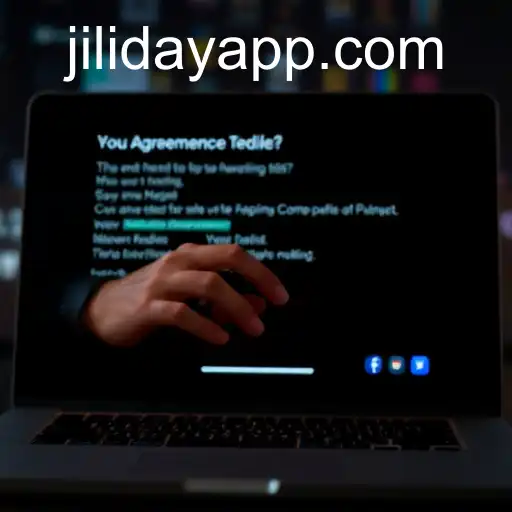
jiliday - Understanding User Agreements in the Digital Landscape
Explore the intricacies of user agreements, their legal importance, and the challenges of understanding terms like 'jiliday' within the digital world.

User Agreement and Its Importance in the Digital Age
In today's digital era, where nearly every online service demands users to agree to certain terms and conditions, the concept of a 'User Agreement' has become increasingly significant. Many people bypass reading these agreements, clicking 'Agree' without understanding the implications. Yet, these documents are vital as they outline the rights and responsibilities of both parties involved—the service provider and the user.
The Core of User Agreements
A User Agreement, often referred to as a Terms of Service (ToS) or Terms and Conditions (T&C), serves as a contract between the service provider and the user. It delineates the legal boundaries within which the service is offered. Typically, it covers a range of aspects including, but not limited to, user rights, privacy policies, limitations of liability, and procedures for dispute resolution.
Understanding Jiliday
When exploring user agreements, the mention of 'jiliday' might arise as a niche service or feature term within the agreements of certain platforms. Jiliday, hypothetically speaking, could be a unique term used to describe a particular day, event, or service offering on a platform, adding another layer of specificity to user agreements. This term would need precise definition within the agreement to avoid legal gray areas.
The significance of such unique terms within a user agreement highlights the necessity for users to thoroughly read these documents. Providers often innovate with new marketing terms like 'jiliday,' and users must understand what consenting to these entails, especially if it affects how data might be used or services delivered.
Legal Aspects and Enforceability
Legally, user agreements are crucial because they set the stage for how disputes will be resolved. By accepting a user agreement, users may be consenting to resolve disputes through arbitration rather than traditional litigation. This aspect is important because it affects the user's legal recourse options. Additionally, enforceability of these agreements can be contingent upon their reasonableness and clarity. Courts have at times found certain overly oppressive terms unenforceable, especially those not made clear to the user at the time of agreement.
User Rights and Privacy
One of the main concerns for users is often the privacy of their data. A well-drafted user agreement will clearly define how user data is collected, shared, and protected. With numerous high-profile data breaches making headlines, understanding the scope of data privacy within these agreements is more important than ever. The provision around user data in an agreement covers consent for data sharing with third parties, data retention policies, and user rights concerning personal information.
The Role of User Agreements in User Consent
The act of user consent forms the foundation of a valid agreement. By clicking 'Agree,' users confirm their acceptance of all terms therein, thus making the agreement binding. However, for user consent to be meaningful, it must be informed. This means users should be presented with the agreement in a manner that is both accessible and comprehensible. Scenarios like jiliday events, where special terms might apply, underscore this necessity for clarity in communication.
Modifications and Updates
Another common feature of user agreements is the provider's right to modify terms at any time. Users agreed to the initial terms but are often notified of changes through updates. The responsibility lies on both parties—providers must communicate these changes effectively, and users should review them regularly to ensure their continued compliance and understanding of the terms they operate under.
Best Practices for Service Providers
Service providers should strive to create user agreements that are user-friendly. This includes using plain language instead of legal jargon, making the document concise, and highlighting key terms—like those concerning personal data or specific terms unique to events like jiliday—within the agreement. Transparency and education about terms can enhance user trust and reduce the likelihood of disputes.
Challenges and User Awareness
Despite the critical role user agreements play, a significant challenge remains user apathy towards reading these documents. Many skip reading due to their length and complexity. Efforts to enhance user awareness could include offering summaries, interactive tours of key terms upon registration, or responsive customer support available to answer agreement-related queries.
Conclusion: Navigating User Agreements
User agreements serve as pivotal legal instruments in the digital context, outlining mutual expectations and duties. With the increasing personalization of services and concepts like jiliday, comprehending these agreements has never been more essential for users. While the landscape of digital services continues to evolve, the fundamental need for clear, fair, and accessible user agreements remains constant.


GOLD VIP
Minimum deposit: ₱1,500
- ✅ 150% bonus on all deposits
- ✅ Priority withdrawal in 1 minute
- ✅ 10% cashback weekly
- ✅ VIP support 24/7
- ✅ Higher betting limits
PLATINUM VIP
Minimum deposit: ₱6,000
- ✅ 200% bonus + all Gold benefits
- ✅ Instant withdrawal 24/7
- ✅ 15% cashback weekly
- ✅ Exclusive VIP table in casino
- ✅ Special event invitations
DIAMOND VIP
Minimum deposit: ₱30,000
- ✅ 300% bonus + all previous benefits
- ✅ Dedicated personal manager
- ✅ 20% cashback weekly
- ✅ Unlimited withdrawal limits
- ✅ Exclusive trips and gifts
🚀 Register NOW and Get ₱15,000 Bonus!
⏰ LIMITED TIME OFFER! Join over 1.2 million players who have already discovered why jiliday is the #1 betting platform in the Philippines. Registration in 30 seconds, first withdrawal in 2 minutes!
💬 What our players say
"Best platform I've ever used! GCash withdrawal in 2 minutes, amazing support!"
- Carlos M., Manila ⭐⭐⭐⭐⭐
"Won ₱45,000 on Gates of Olympus! They paid everything correctly via GCash."
- Ana L., Cebu ⭐⭐⭐⭐⭐
"VIP system is amazing! I have a personal manager and cashback every week."
- Roberto S., Davao ⭐⭐⭐⭐⭐
PAGCOR License
SSL 256-bit
eCOGRA
BSP Approved





